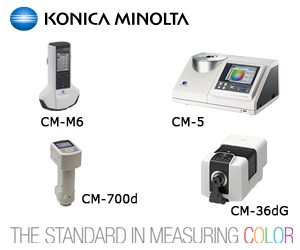Are You Fighting the Fight Against the Haters?
Today, as I was reading two articles in this issue that are angled at biomaterials, it struck me how few plastics processors have joined the fray to protect their own business.
Today, as I was reading two articles in this issue that are angled at biomaterials, it struck me how few plastics processors have joined the fray to protect their own business. Maybe I’m missing something, but I hear those clamoring to ban or tax this or that plastics product a lot louder than I hear those fighting for their preservation.
I have been a part of the plastics trade press for more than 22 years, in various capacities and holding several job titles. I remember the unlucky garbage barge of the late 1980s, which kept sailing around looking for a port that would accept its cargo. That’s about when I started. That floating nemesis brought the anti-plastics zealots out in droves, until the science of what really does and does not occur in a landfill was explained to them.
I’ve always maintained that we in this industry do a good job of preaching to the choir. But the choir isn’t making the decisions on what materials are “earth-friendly” and which should be done away with. It starts with people at the grass-roots level, with everyday consumers, most of whom—understandably—don’t know a thing about our business.
A decade or so ago, when anti-plastics sentiment was perhaps at its apex, the American Plastics Council, now part of the American Chemistry Council, spent millions on a series of television and print campaigns (“Plastics Make it Happen”) aimed at convincing a skeptical and ill-informed public that the benefits of plastics far outweigh any risks proclaimed by voodoo science. This ad campaign, which was financed by the chemical and resin companies, proved extremely successful, and things quieted down a bit—for awhile. But the plastics haters have turned up the heat again.
The Society of the Plastics Industry (SPI) has also tackled this issue. It initiated Operation Clean Sweep years ago, a program that advises processors on how to keep spilled pellets from making their way into local waters and eventually the ocean. It established a council on biopolymers. It made sustainability a theme at last year’s NPE show. It has a website loaded with the information on the societal benefits of plastics, and even has a section called Myth Busters that is intended to dispel common misconceptions that ordinary folks have about plastics. And more recently, SPI announced it would be using social media to get the word out on plastics to the next generation of consumers.
But these efforts, driven mostly by the supply side, won’t succeed without direct involvement from the processors—the companies making the products that now are at risk. And I think processors have been mysteriously shy about joining the fight.
Maybe I’m wrong. Maybe the battles you’re waging are behind the scenes. Maybe you’re making appearances before local governments considering taxes or bans and letting them know the error of their ways. Maybe you’ve even contributed money to trade associations so they can take up the fight for you.
My email address is jcallari@ptonline.com. If you’re a processor fighting the good fight, let me know. In fact, let me know your thoughts either way.
Read Next
For PLASTICS' CEO Seaholm, NPE to Shine Light on Sustainability Successes
With advocacy, communication and sustainability as three main pillars, Seaholm leads a trade association to NPE that ‘is more active today than we have ever been.’
Read MorePeople 4.0 – How to Get Buy-In from Your Staff for Industry 4.0 Systems
Implementing a production monitoring system as the foundation of a ‘smart factory’ is about integrating people with new technology as much as it is about integrating machines and computers. Here are tips from a company that has gone through the process.
Read More









 (2).jpg;maxWidth=300;quality=90)










